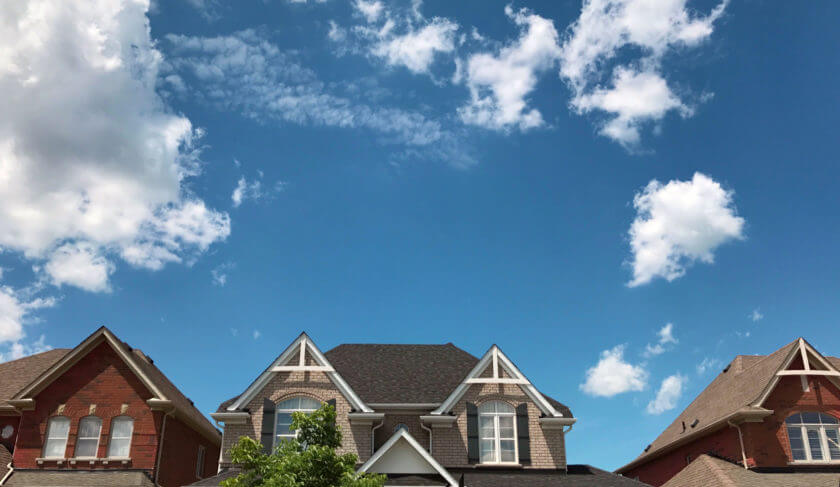
During the pandemic, our priorities shifted. For years, many of us prioritized living somewhere close to a metro station, but during COVID, an outdoor patio was what we valued most. Although countless city-dwellers packed their bags and headed for the suburbs in 2020, many city-dwellers hung onto their deluxe apartments in the sky. Yet now, as the country emerges from COVID, we’re seeing yet another re-evaluation of where to live — skyrocketing rents in major cities across the country are forcing even those of us who swore we’d never leave to rethink the years ahead. In New York City, rents are up by 33%, and San Francisco is seeing an increase of almost 20% from 2021 to 2022. Even in smaller cities, like Nashville, rents are up by 15% over the last year.
And when you couple rising rent prices with inflation at 8.5%, gas approaching $5 per gallon, and raises that, for many of us, are either small or non-existent, it’s clear that something’s gotta give. And while the housing market is far from “affordable” right now, there are still deals to be had, and prices, at long last, have finally begun coming down. (So, no, please don’t be one of the people out there waiving inspections and paying $200k over asking price.) If you’re considering making the shift from walk-ups and brownstones to a white picket fence and a four-car garage, it’s time to make sure you’re ready for a lifestyle change.
We checked in with real estate experts to understand why more people are bidding cities adieu, and how to know if the suburbs may be right for you.
Compromise Is King
Living in a city requires compromise. For the premium you pay, you have easy access to work, museums, restaurants and other cultural hotspots. In exchange, you sacrifice space. In the suburbs, you’ll find much more square footage, but you’ll need to commute to be part of the action. What’s right for you? It all comes down to your personal motivations, explains broker for Engel & Völkers Hoboken Tiffany A. Wentz. If you’re living in a city and thinking of moving out, here are some perks to consider.
There will be room for everyone: You, your partner, your kids and your dog have all been nestled into the same four walls for far too long. It might be cozy for a weekend, but long-term, it might feel a tad claustrophobic. Wentz says many people are seeking more room to spread out for home offices, distance learning areas, playrooms, home gyms, and so on.
More access to green space and nature: Even if you live a few blocks away from Central Park, how often are you really going for a walk? And let’s be honest — if your company hasn’t called you back to the office by now (just 9% of companies require their employees to be in the office 5 days per week) they might not ever require you to be there full-time. This means that you might not be getting a torturous commute in exchange for your beautiful back yard, after all. The allure of being able to take a call from a green space all your own is alluring for many, Wentz shares.
Avoiding Regrets
Housing prices have already begun coming down in cities including Los Angeles, Richmond, Detroit, Chicago, Memphis, and countless others. Yes, mortgage rates are higher than they’ve been in several years, but for prospective buyers, it’s nice to see the silver lining of prices on the decline. But, before you make a move from the cities to the suburbs, how can you know if it’s the right move for you? These considerations can help you make an informed decision:
Research the town. Before pointing to a random town on a map and hiring a moving company, think strategically about your potential new location. To do this, Wentz says to think about your current lifestyle and habits and what matters to you the most. If you love to go on family walks, you need a community that allows for trekking. If you like having easy access to grocery stores and coffee shops, you may want to be closer to the heart of the town. Parents should also research the school district and get an understanding of the recreational activities available. Once the world ‘opens up’ again, you’ll want the ability to recreate some of your favorite pastimes and events.
Remember the realities of having a home. If part of moving to the ‘burbs is so you can afford to purchase a home, Wentz reminds first-time homeowners it’s not all roses Remember that you’re responsible for any and all expenses once you’re your own “landlord.” This includes maintenance, landscaping, appliances, electricity, plumbing, and everything in-between. “You want to make sure you have a household funds account set aside to pay for repairs because you’re the only one contributing to those expenses,” she recommends.
Factor in the cost of a car. If you’ve been accustomed to biking or taking the subway everywhere, get ready for long car drives — and on blue sky days, with the windows rolled down, they sound pretty great. Just keep in mind that they come at a cost, reminds Kirste Gaudet, a broker at @properties in Chicago. From payments and insurance to gas and upkeep, a car is a sizable addition to your monthly spending.
WE’RE TALKING ALL THINGS MORTGAGE AND REAL ESTATE ON HERMONEY:
- Buying or Selling a Home Virtually? Yep, It’s Totally Doable — and Popular
- 4 Easy Hacks to Increase Your Credit Score
- Mortgage 101: What Is Escrow, Prequalification?
- Why Did My Mortgage Feel So Much More Serious Than My Marriage?
SUBSCRIBE: Own your money, own your life. Make this thing official by subscribing to HerMoney today to get the latest money news and tips!







